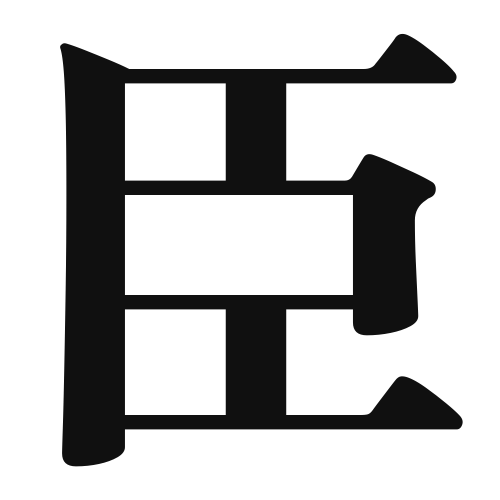1. Overview of Meaning
The kanji “臣” (pronounced “shin” or “omi”) means “minister” or “subject.” It refers to a person who serves a ruler or a higher authority, often in a governmental or official capacity.
2. Formation and Radical
Formation of the Kanji: The kanji “臣” is classified as a pictogram, originally depicting a person kneeling or bowing, symbolizing loyalty and service to a ruler.
Radical: The radical for “臣” is “臣” itself, which is used in other kanji related to service or governance.
3. Examples of Usage
Common Words and Phrases:
- 臣下 (しんか, shinka) – vassal, subordinate
- 大臣 (だいじん, daijin) – minister (of state)
Example Sentences in Daily Conversation:
- 彼は国の大臣として働いています。 (かれはくにのだいじんとしてはたらいています。) – He works as a minister of the country.
- 臣下は王に忠誠を誓った。 (しんかはおうにちゅうせいをちかった。) – The subjects pledged loyalty to the king.
4. Synonyms and Antonyms
Similar Kanji:
- 家臣 (かしん, kashin) – retainer, a person who serves a lord or master.
- 部下 (ぶか, buka) – subordinate, a person who works under someone else.
Antonyms:
- 主 (しゅ, shu) – master, lord; the one who holds authority.
5. Cultural and Historical Background
Relation to Japanese Culture: The concept of “臣” is deeply rooted in the feudal system of Japan, where loyalty to one’s lord was paramount. This relationship is often depicted in historical dramas and literature.
Proverbs and Idioms:
- 忠臣蔵 (ちゅうしんぐら, Chūshingura) – a famous story about loyal retainers who avenged their master.
